Abstract
Determining the mode of inheritance is often difficult under the best of circumstances, but when segregation analysis is used, the problems of ambiguous ascertainment procedures, reduced penetrance, heterogeneity, and misdiagnosis make mode-of-inheritance determinations even more unreliable. The mode of inheritance can also be determined using a linkage-based method (maximized maximum lod score or mod score) and association-based methods, which can overcome many of these problems. In this work, we determined how much information is necessary to reliably determine the mode of inheritance from linkage data when heterogeneity and reduced penetrance are present in the data set. We generated data sets under both dominant and recessive inheritance with reduced penetrance and with varying fractions of linked and unlinked families. We then analyzed those data sets, assuming reduced penetrance, both dominant and recessive inheritance, and no heterogeneity. We investigated the reliability of two methods for determining the mode of inheritance from the linkage data. The first method examined the difference (delta) between the maximum lod scores calculated under the two mode-of-inheritance assumptions. We found that if delta was > 1.5, then the higher of the two maximum lod scores reflected the correct mode of inheritance with high reliability and that a delta of 2.5 appeared to practically guarantee a correct mode-of-inheritance inference. Furthermore, this reliability appeared to be virtually independent of alpha, the fraction of linked families in the data set, although the reliability decreased slightly as alpha fell below .50.(ABSTRACT TRUNCATED AT 250 WORDS)
Full text
PDF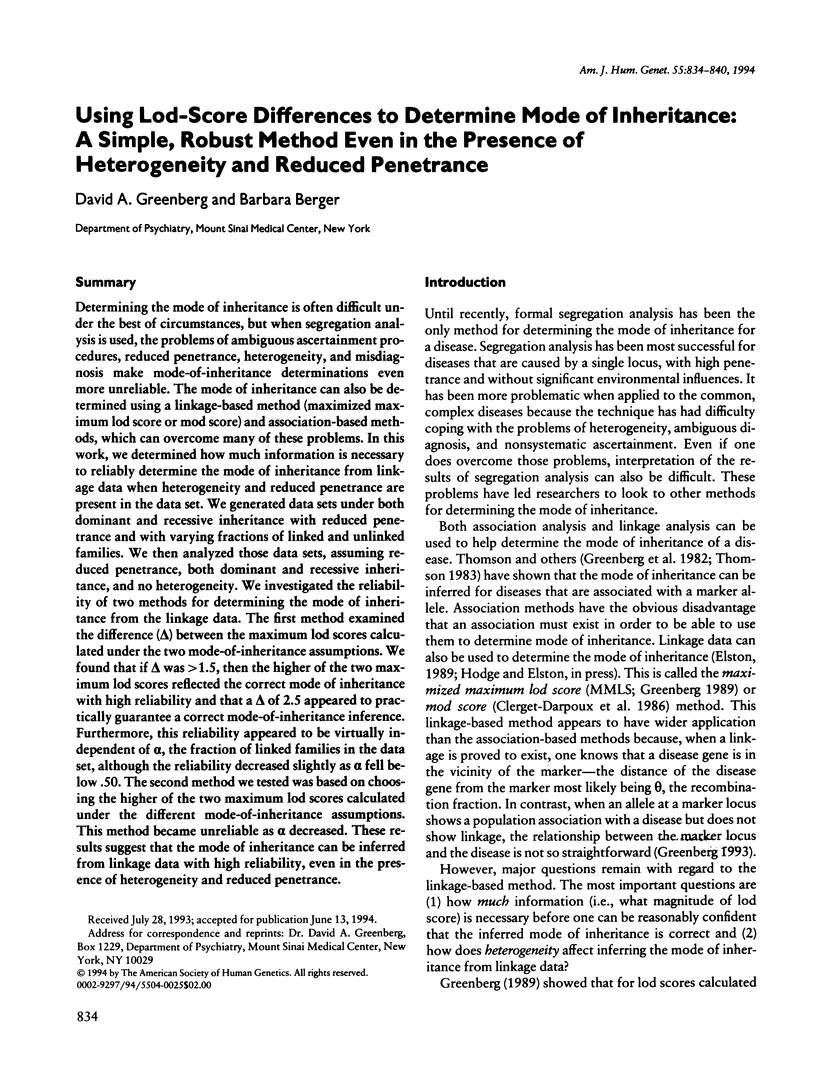
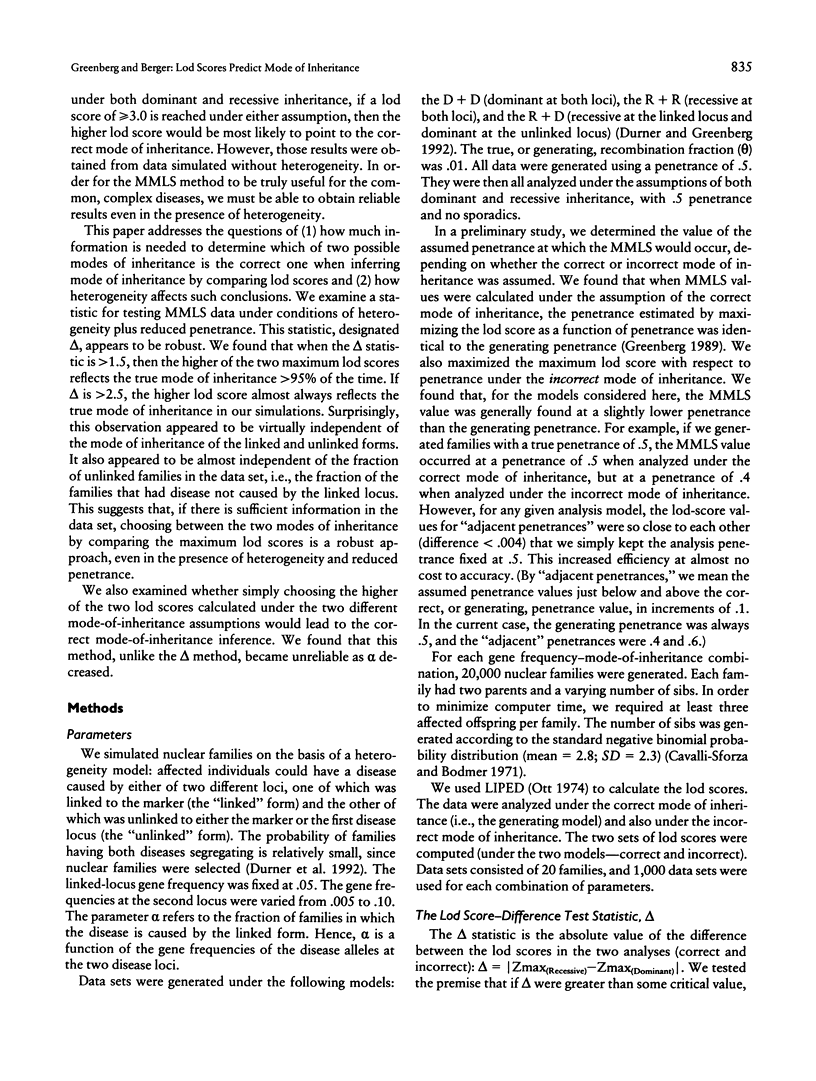
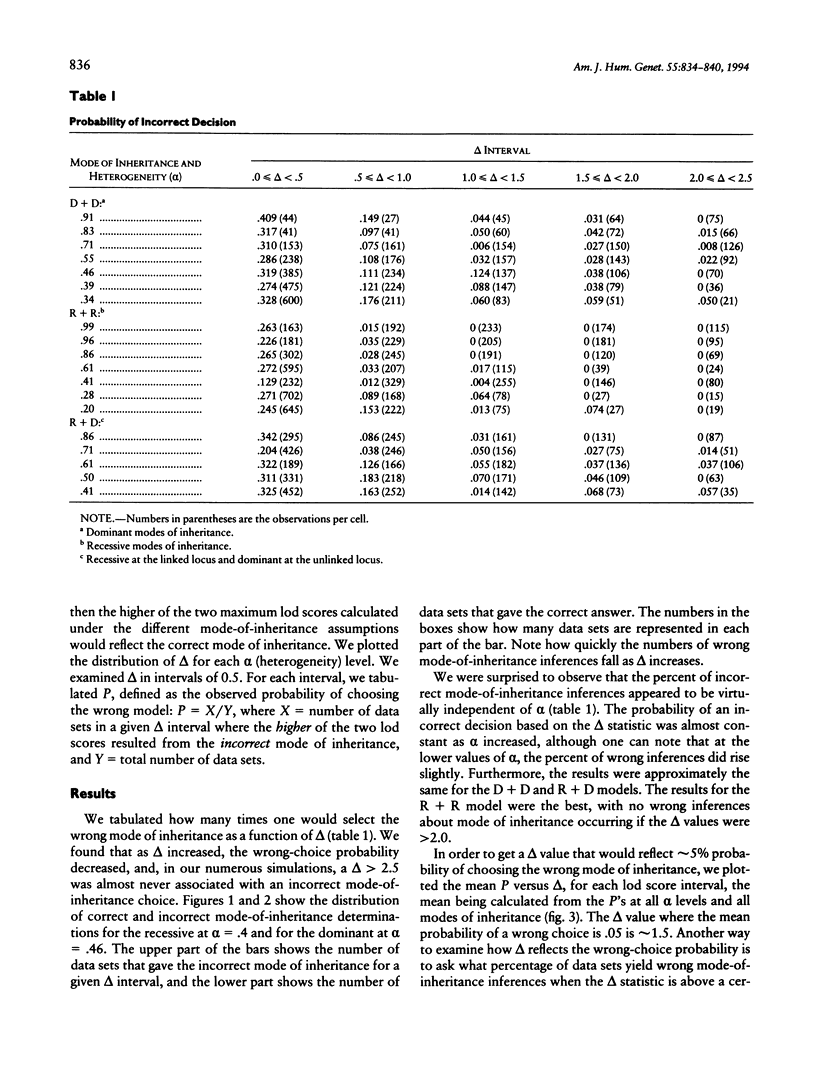
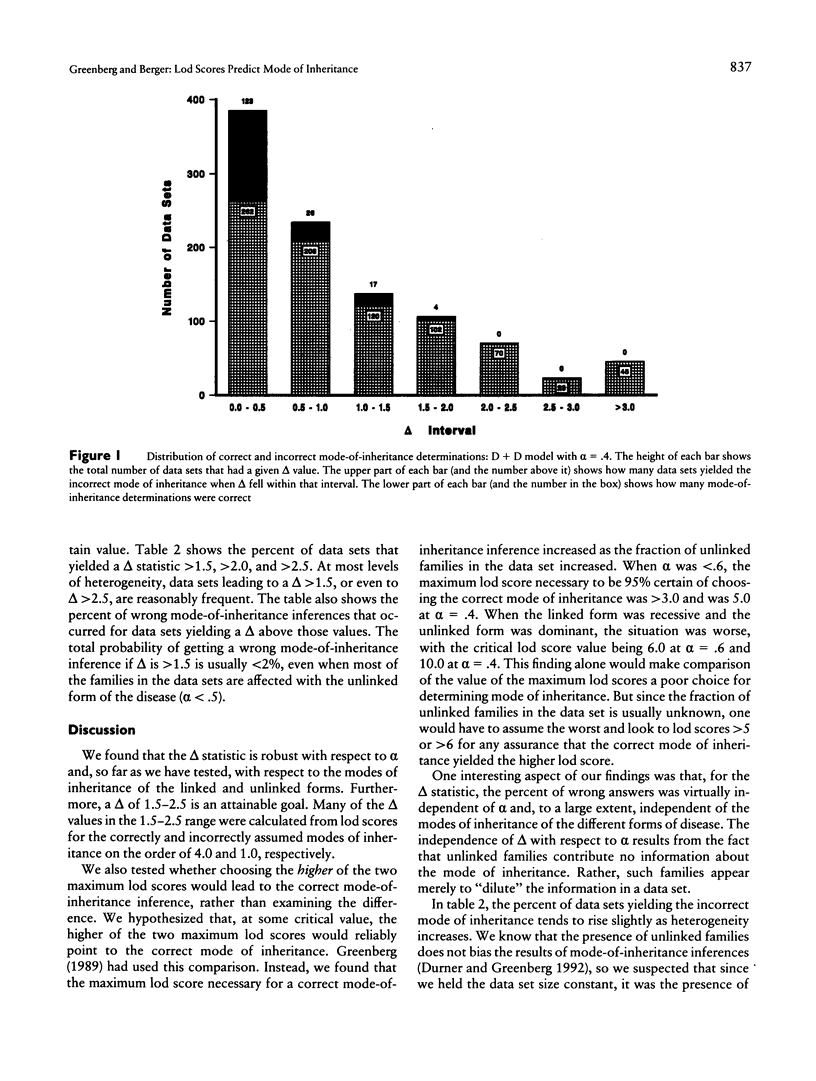
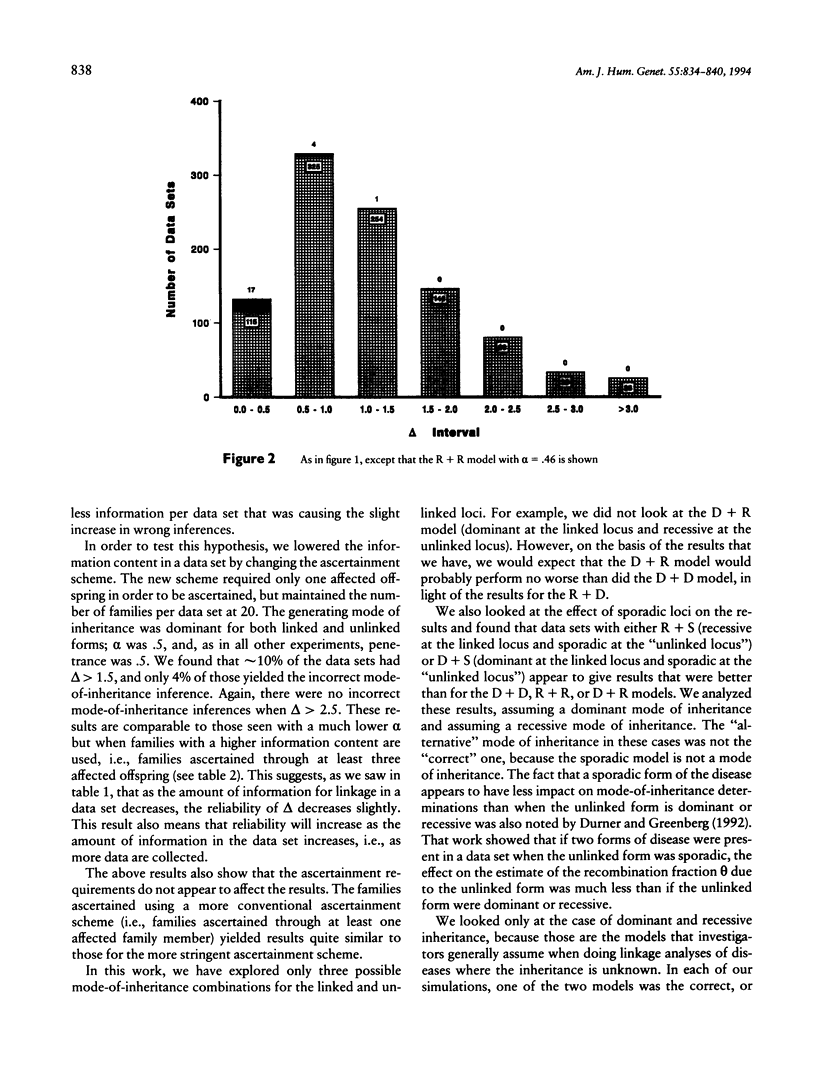
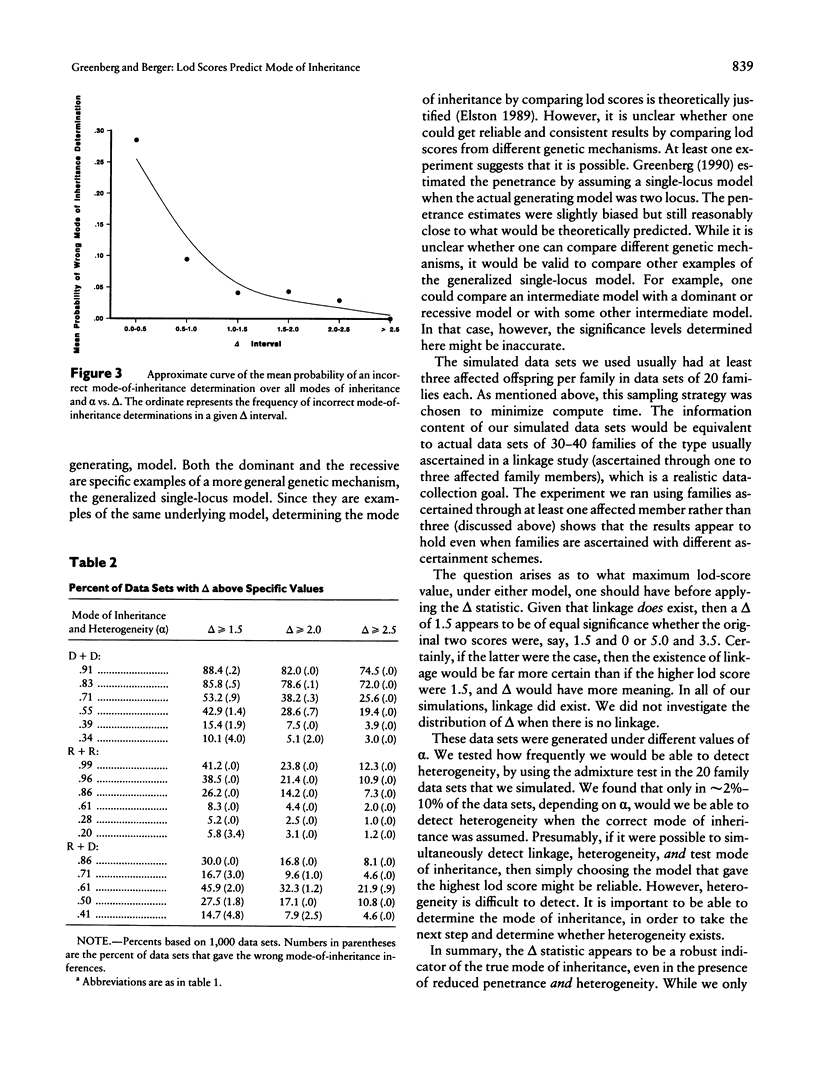
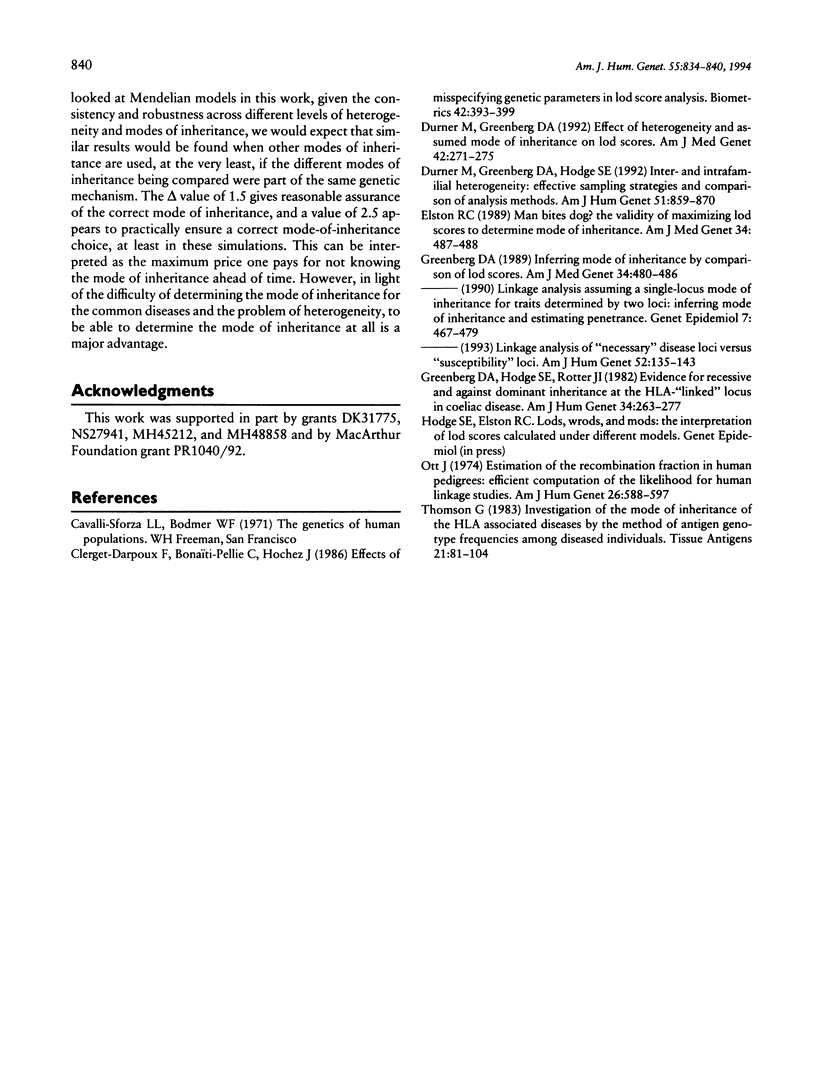
Selected References
These references are in PubMed. This may not be the complete list of references from this article.
- Durner M., Greenberg D. A. Effect of heterogeneity and assumed mode of inheritance on lod scores. Am J Med Genet. 1992 Feb 1;42(3):271–275. doi: 10.1002/ajmg.1320420302. [DOI] [PubMed] [Google Scholar]
- Durner M., Greenberg D. A., Hodge S. E. Inter- and intrafamilial heterogeneity: effective sampling strategies and comparison of analysis methods. Am J Hum Genet. 1992 Oct;51(4):859–870. [PMC free article] [PubMed] [Google Scholar]
- Elston R. C. Man bites dog? The validity of maximizing lod scores to determine mode of inheritance. Am J Med Genet. 1989 Dec;34(4):487–488. doi: 10.1002/ajmg.1320340407. [DOI] [PubMed] [Google Scholar]
- Greenberg D. A., Hodge S. E., Rotter J. I. Evidence for recessive and against dominant inheritance at the HLA-"linked" locus in coeliac disease. Am J Hum Genet. 1982 Mar;34(2):263–277. [PMC free article] [PubMed] [Google Scholar]
- Greenberg D. A. Inferring mode of inheritance by comparison of lod scores. Am J Med Genet. 1989 Dec;34(4):480–486. doi: 10.1002/ajmg.1320340406. [DOI] [PubMed] [Google Scholar]
- Ott J. Estimation of the recombination fraction in human pedigrees: efficient computation of the likelihood for human linkage studies. Am J Hum Genet. 1974 Sep;26(5):588–597. [PMC free article] [PubMed] [Google Scholar]
- Thomson G. Investigation of the mode of inheritance of the HLA associated diseases by the method of antigen genotype frequencies among diseased individuals. Tissue Antigens. 1983 Feb;21(2):81–104. doi: 10.1111/j.1399-0039.1983.tb00377.x. [DOI] [PubMed] [Google Scholar]


